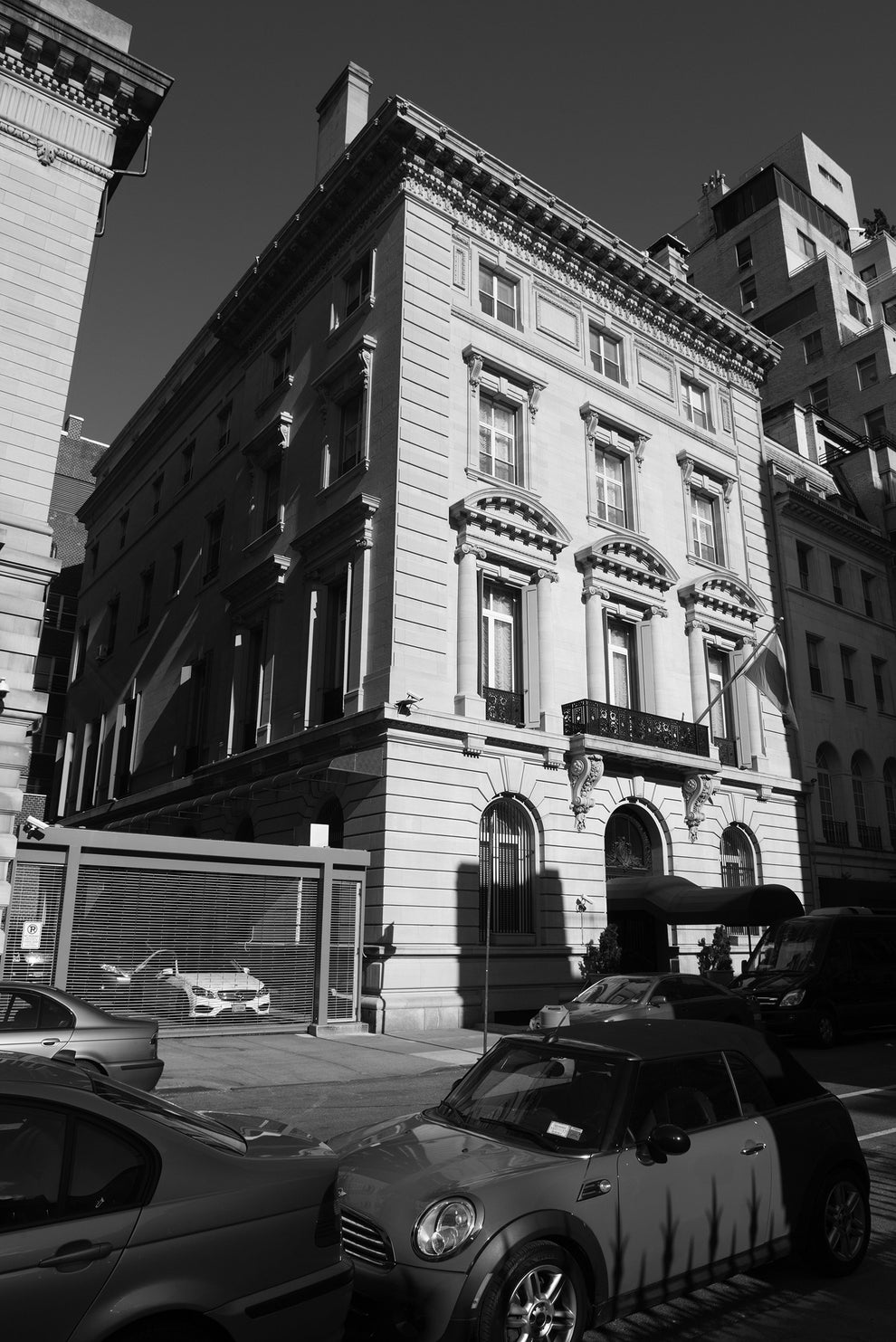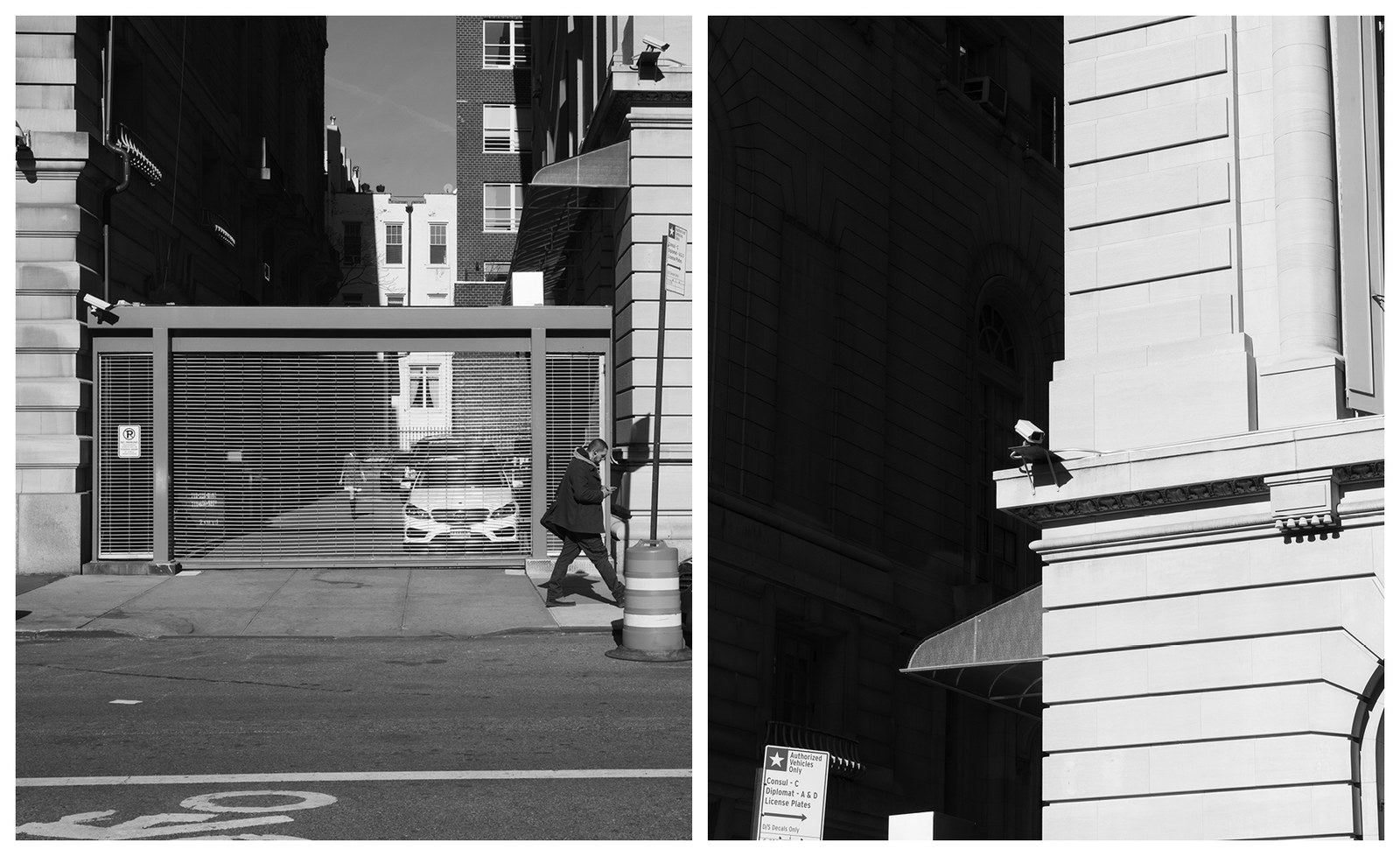The Strange Case Of The Russian Diplomat Who Got His Head Smashed In On Election Day
The Strange Case Of The Russian Diplomat Who Got His Head Smashed In On Election Day
How did Sergei Krivov die? And why did the NYPD close the case?
Ali Watkins
BuzzFeed News Reporter
NEW YORK — He was found just before 7 a.m. on Election Day, lying on the floor of the Russian Consulate on the Upper East Side.
The man was unconscious and unresponsive, with an unidentified head wound — “blunt force trauma,” in cop parlance. By the time emergency responders reached him, he was dead.
Initial reports said the nameless man had plunged to his death from the roof of the consulate. As journalists rushed to the scene, consular officials quickly changed the narrative. The anonymous man had not fallen dozens of feet from the roof of the consular building, they
said, but rather had suffered a heart attack in the security office, and died.
By the time the man’s body left the morgue the next day, Donald J. Trump was president-elect of the United States.
By the time the man’s body left the morgue the next day, Donald J. Trump was president-elect of the United States. It was the culmination of a sensational, bitterly divisive political campaign that US intelligence agencies would later say Russia actively sought to manipulate and skew in Trump’s favor. With the election results, the world had turned upside down, and the death of the man at the consulate quickly faded from view.
Police officers said the death of Sergei Krivov — his name revealed here publicly for the first time — looked natural, and listed the case as closed.
But who was Krivov? And how did he really die? Three months after he was found dead, as tensions between the US and Russia reach a fever pitch, the New York City medical examiner isn’t sure he had a heart attack after all.
The Russian Consulate at 11 E. 91st St. in New York City on Feb. 6, 2017. Ben King / BuzzFeed News
As far as paper trails go, dying is a messy thing, even under normal circumstances. But in the months since Krivov’s death, it’s proven nearly impossible to find out how he died, who he was, and how, if at all, federal authorities were involved in any investigation.
English-language news
reports said Krivov, identified then only as a 63-year-old Russian national and Manhattan resident, was a security officer. But a November
report from Sputnik, the English-language Russian media outlet, says he was a consular duty commander.
That position is no ordinary security guard. According to other public Russian-language
descriptions of the duty commander position, Krivov would have been in charge of, among other things, “prevention of sabotage” and suppression of “attempts of secret intrusion” into the consulate.
In other words, it was Krivov’s job to make sure US intelligence agencies didn’t have ears in the building.
As far as paper trails go, dying is a messy thing, even under normal circumstances.
The duty commander would also have had access to the consulate’s crypto-card — the top secret codebreaker used to encrypt and decrypt messages transmitted between the consulate and other Russian channels. It was likely Krivov who helped transmit cables in and out of the heavily guarded building.
Despite being described as a Manhattan resident by the NYPD, Krivov is a phantom in public records. No one with his name, or any iteration of it, has lived in Manhattan for years, and the only other two Krivovs listed in New York state didn’t return calls asking if they knew a Sergei (in the NYPD’s files, Krivov’s name is not transliterated as “Sergei” or “Sergey” but as the less common “Cergej”). Neither were listed as related to one. An NYPD officer looking at the case file told BuzzFeed News no family was listed.
The NYPD told BuzzFeed News the responding officers were in contact with “whoever was in charge of the consulate” for information regarding Krivov.
But when BuzzFeed News went to Krivov’s address, listed in the NYPD’s files, at 11 E. 90th St., it wasn’t a residence. It’s a Smithsonian-owned office building for its neighboring Cooper Hewitt design museum. It’s located a block behind the Russian Consulate, which is at 9 E. 91st St. One of the consulate’s public entrances is 11 E. 91st St.
Asked about the discrepancy, the NYPD insisted that 11 E. 90th St. was the address they had been given for Krivov, apparently by Russian consular officials.
“No one is living here — this is where my desk is right now,” a Smithsonian employee at the address said when BuzzFeed News called.
It’s unclear how thoroughly or for how long the NYPD investigated Krivov’s death. Multiple officials declined to offer any details about the investigation. Several officers told BuzzFeed News the case is listed as “closed.”
“The narrative of the story is kind of vague, it’s not saying much,” one officer said, scanning the incident report with BuzzFeed News on the phone. “With all cases like this, it is investigated by the detective squad,” he said. “For some reason it was closed out.”
A separate officer said the case was listed as “no criminology suspected, natural causes.”
The medical examiner’s office, though, says their investigation of Krivov’s death remains open.
“The cause and manner of death are pending further studies,” said Julie Bolcer, a spokeswoman for the office. “There are no results to share yet.”
After BuzzFeed News published this story, the Medical Examiner’s office said that, while it did continue investigating the cause of death, the office had determined Krivov died naturally.
“This is a natural death,” Bolcer said. “We are doing advanced studies to characterize the details of the underlying disease.”
Further, the office said it is not unusual for the NYPD to close the case despite the lack of a clear cause of death, since the office had said the death was not suspicious. Toxicology tests were completed, the office continued, and the results were not going to be related to the death.
But others who spoke with BuzzFeed News said his disconnect between the medical examiner’s office and the NYPD is not normal. In standard practice, a death investigation would not be formally closed by police officers until the medical examiner had reached a determination on the death.
“It’s open until you can get a cause of death….there has to be a complete circuit with a case,” said Marq Claxton, a former NYPD investigator. “That case is going to stay open until there’s a final determination, it could be a homicide, it could be something, it could be accidental or whatever.”
A separate medical examiner official said Krivov’s body had been released the day after his death, but declined to say to whom the body was released. That the medical examiner no longer has the body, but testing continues, suggests toxicology screening of tissue or blood samples.
It’s not necessarily uncommon for toxicology tests to take weeks or even months to come back. The medical examiner’s office would not specify the kind of further testing being done.
None of the five major funeral chapels or funeral homes in upper Manhattan knew of any recently deceased person named Krivov. The New York City Health Department declined BuzzFeed News’ request to search for records related to Krivov’s death, saying that by standard practices, any search had to be requested by a family member. The city’s burial desk, which tracks documentation from funeral homes, said it only files paperwork and doesn’t have a searchable database.
The NYPD
denied BuzzFeed News’ request for the incident report, saying the request did not contain enough details, including the date, precinct, and location of Krivov’s death, or the incident number. BuzzFeed News’ request in fact included all of that information. A separate denial said the incident report “is not a public record and can only be obtained through due process of law (Court Ordered Subpoena).”
According to experts and former police officers, incident reports are not generally withheld by the NYPD.
“The incident report, after an investigation is closed, typically that is releasable,” said Michael Morisy, the founder of MuckRock, a nonprofit organization dedicated to government transparency and records laws. “It’s really weird that they would categorically state that was rejected…incident reports are not broadly exempt from public records law.”
In a last-ditch effort to find where Krivov’s body may have been taken, BuzzFeed News called Aeroflot airlines, the only major carrier with direct flights between New York and Moscow. Aeroflot would not say whether it had flown a body from New York to Russia in the days following Nov. 8. Information about body transports, it said, was classified and could only be released by a government entity.








